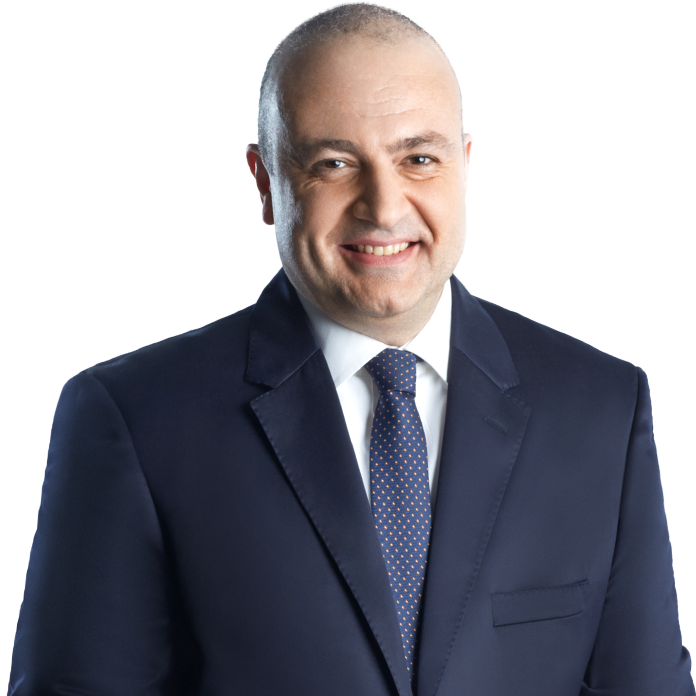As President Recep Tayyip Erdoğan's plane was landing in Iran’s Tehran, Russia was bombing the fronts of Syria’s Idlib's, knowing very well the disturbance the timing caused Turkey. This is aside from the discontentment that was publicly conveyed to Moscow regarding its previous air raid.
The second of the formal requirements from the meeting of the three state leaders was broadcast live to the whole world. This truly is a fascinating and rare situation. It would even be appropriate to teach it as part of a lesson in the departments of foreign politics and international relations, as well as related institutes.
Of course we should not be surprised that a meeting connecting not only Idlib but Syria and the Middle East to many countries and international organizations and is awaited/watched impatiently is broadcast live.
We need to know that those who are quick to jump at the "appearance of strangeness" here, and those applauding for Turkey falling into a bad situation are likely to rapidly fall down; the live broadcast proved to everyone in the region that Turkey has done its part and nobody should expect more than that!
The poem recited by President Erdoğan during the discussions was also quite harsh. We saw the impact of its harshness on President Hassan Rouhani's face.
***
It is clear that the Astana trio worked well on the meeting that focused on Syria in general and Idlib specifically. It is clear that the intelligence, defense and diplomacy cadres of these three countries presented a to-the-point text to the world public and thus the summit ended within an hour.
In this way, there we no "waiting" periods that would lead to any speculation, where long bilateral and tripartite meetings would reflect an image of weakness on the Astana trio.
This must have surprised everybody. We knew that the U.S. in particular could not obtain any information regarding the content during the development stages of this meeting, but we could see that it would include a "stance" aimed at it.
Iran’s implication during the summit that the U.S. “is responsible” and must be “thrown out” of the region in meaning that was seen as correct by the partners of the process, was found in the joint statement as “all attempts on the field to create new realities under the guise of fighting terrorism are rejected,” and was covered by Russia’s active news site Sputnik after the summit as “Tehran trilateral summit: The U.S. presence in the region must end for insecurity in Syria to end” shows that the trios clearest agreement is concerning the U.S.
U.S. President Donald Trump's, "let's get out of here" statement changing to "we are staying" with this timing is also related to this. Because after Idlib, it will unavoidably become northeastern Syria’s turn. Nobody thought that the U.S. was concerned for the innocent people of Idlib.
The U.S. - regardless of what it says - is not against a military operation targeting Idlib. It just does not want nuclear weapons used, because this will impact domestic balances ahead of the elections and the Kurdistan Workers' Party's (PKK) armed wing in Syria, the People's Protection Units (YPG), need to be kept out of this.
***
As for the 12-article final declaration:
We can consider articles 1, 7, 8, 9, 10, 11 and 12 as protocols and words of politeness. Article 2 targets the U.S. and the Democratic Union Party (PYD) and its armed YPG militias: "[The sides] have expressed that they are determined to stand against the separationist agendas aimed at weakening the national security of countries neighboring Syria."
Could a different meaning be ascribed to the last sentence in article 3 that drew nobody's attention when evaluated through the perspective of a point President Erdoğan emphasized during his speech at the summit?
"...in the spirit of cooperation that identifies the Astana format..." Erdoğan also made almost the same statement, but the toning we are talking about is, "in the spirit ensuring the minimum collectivity of Astana..." It is like sentence ended in this way: "There is also maximum collectivity!" I am putting this on the shelf for now as a "strained" interpretation for now. I will recall it if the leverage behind it surfaces in time.
However, we can also interpret it as the rise of an expectation aimed at Turkey's presence in Syria, a reaction to hints that this is where it's leading to.
There are very few sentences in the joint statement that are ambiguous.
"They have expressed their determination to stand against separationist agendas aiming to weaken Syria's sovereignty and territorial integrity, as well as the national security of neighboring countries."
"They have confirmed their determination to continue their cooperation to completely eliminate Daesh, Nusra Front, al-Qaida, and other groups linked to Daesh which are identified as terrorists by the UN Security Council."
Articles 5 and 6 seek political solutions in Syria.
However, the real theme of the Tehran Summit and declaration released by the trio of leaders, its political message is: The rough part of the task in Syria is over and, as the main allies siding with Damascus from the very beginning, Russia and Iran now want to reach a political conclusion and hope to have it approved by international platforms.
Finally, the question, "Will there be an offensive targeting Idlib?" also received a clear response. Yes, there will be. This was no surprise either. There will be an offensive, but attention will be paid to Turkey's "sensitivities and proposals."
Targeted operations, the use of in-depth and comprehensive intelligence activities regarding elements in the region, Turkey's security support for Russian bases and Ankara’s influence over the opposition are included in these.




















